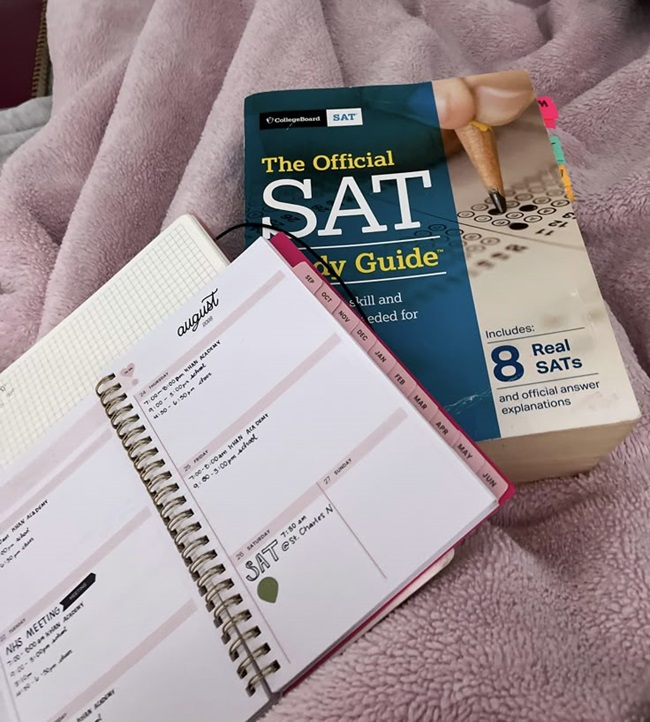For students planning to study in the United States, the SAT (Scholastic Assessment Test) is often a key step in the college admissions process. Whether you’re in high school or considering applying to university years after graduation, one critical question arises: how long are SAT scores valid?
Understanding the lifespan of SAT scores is crucial to strategizing your college applications effectively. In this article, we’ll break down the official validity period, how colleges interpret older scores, and what test-takers should keep in mind for long-term planning.
SAT Scores: Official Validity vs. Institutional Acceptance
Do SAT Scores Expire?
Technically, SAT scores do not expire. The College Board—the organization that administers the SAT—stores and maintains test scores indefinitely. Even if you took the test 10 or 20 years ago, your results are still on file.
According to the College Board:
“SAT scores are archived and can be requested at any time, regardless of how long ago the test was taken.”
(Source: College Board)
However, the real issue lies not with whether the scores exist, but whether colleges will accept them.
How Long Do Colleges Accept SAT Scores?
Although the College Board keeps your scores forever, most colleges and universities only accept SAT scores that are five years old or less.
This policy is based on the assumption that academic skills, especially in math and reading, may decline or evolve over time. A score from six or seven years ago might not reflect your current abilities.
For example:
- Harvard, Stanford, and other top-tier schools usually accept SAT scores up to five years old.
- Some technical programs or continuing education institutions may request even more recent scores, typically within 2–3 years.
Always check each institution’s specific SAT policy on their admissions page or contact their admissions office directly.
Why Colleges Prefer Recent Scores
Colleges want to evaluate how well-prepared you are right now, not five or ten years ago. Here are a few reasons why institutions often set a 5-year validity limit:
Academic Knowledge Changes
Subjects evolve. Math standards shift. Reading comprehension approaches adapt. A test taken years ago may not align with the current academic framework.
SAT Format Changes
The SAT has undergone significant changes over the years. In 2016, the SAT returned to a 1600-point scale (down from 2400) and removed penalties for wrong answers. A Digital SAT is now being rolled out globally. Colleges may not want to compare older test versions to new ones.
“The SAT was redesigned in 2016 to better reflect what students learn in high school and the skills needed for college.”
(Source: College Board)
Skill Decay
A student’s analytical and critical thinking abilities can improve—or deteriorate—over time, depending on how much they engage with academic material after high school.
Can You Still Use Old SAT Scores?
Yes, but there are a few things to know:
Requesting Archived Scores
If your SAT scores are older than one year, they may be archived. You can still order them through your College Board account or by calling customer service.
- Standard score reports: Free for the first few sends
- Archived score reports: Usually include a retrieval fee (approx. $31, as of 2024)
Be Strategic
If you’re planning to apply to college after a long break, and your SAT scores are older than five years, it’s usually safer to retake the test—especially if you’re aiming for competitive schools.
What If I Want to Retake the SAT?
Retaking the SAT can be a smart move, especially if:
- Your scores are outdated (5+ years)
- You want to improve your previous score
- You’re applying to highly selective programs
- You’re more academically prepared now
The SAT is offered multiple times per year, and with the new Digital SAT, students can expect a shorter, more efficient testing experience with quicker results.
“The Digital SAT takes about 2 hours and 14 minutes to complete, with scores available in just a few days.”
(Source: College Board, 2024)
Summary: Key Takeaways
| Topic | Detail |
| Official Validity | Indefinite (scores never expire) |
| College Acceptance | Typically valid for 5 years |
| How to Use Old Scores | Request archived reports via College Board |
| Retake Recommendation | If your scores are 5+ years old or outdated |
| Why Validity Matters | Colleges want recent, relevant academic evidence |
Conclusion
So, how long are SAT scores valid? Technically, forever. But practically, most colleges will accept them for up to five years from your test date. That five-year window can make or break your application strategy.
If your scores are nearing the limit or if you feel you can do better now, it may be wise to retake the SAT. Make sure you check each school’s specific requirements and plan accordingly.
Your SAT score isn’t just a number—it’s a snapshot of your readiness, and like any snapshot, it matters how recent it is.



